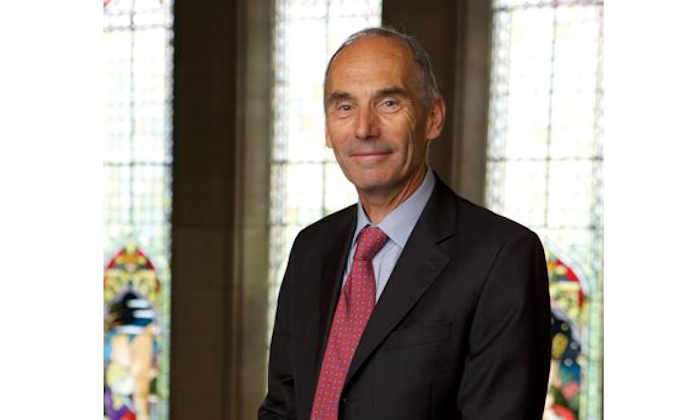Getting to know our Board of Governors
14 Feb 2022
We talk to Chair Edward Astle about who he is, how he and his colleagues support our University – and why he was drawn to this essential role

One of the areas of our University that may not be understood as well as it might is the Board of Governors – its role and the people who make it up.
This issue was raised in last year’s independent review of our governance by Halpin and so to give everyone a better understanding, over the coming weeks and months, we’ll be featuring a series of communications looking at various aspects of the Board and its work.
To kick off this week, we’re talking to a couple of our lay board members, getting to know them a little better – starting with Chair, Edward Astle.
Can I ask, what attracted you to a role on the Board in the first place?
Following my 30-year international career mainly in telecoms and energy, I had spent five fascinating years at Imperial College as Pro Rector Enterprise and wanted to remain engaged in the sector as I built my non-executive portfolio. I was particularly attracted to Manchester because of its dynamic and growing reputation under Nancy, its success in being awarded the bp-ICAM research contract, and its commitment to social responsibility. I had also been brought up and gone to school in Manchester and was relocating to the North West.
What are your top core skills (or areas of expertise) that you bring to the Board?
I bring leadership, financial and commercial skills in large complex international organisations, senior (albeit non-academic) experience in a leading research-intensive university, and an understanding of innovation and translation (having chaired two university-inspired start-ups in addition to my role at Imperial). I also have extensive governance experience, having now served on many corporate and charity boards.
What are the three things that have impressed you most about the University in your time on the Board?
It’s difficult to limit this, but I would highlight the scale of its ambition which is matched by progress on so many fronts; its commitment to social responsibility; and its global reach and reputation alongside its remarkable connectedness to the City and local communities.
What have been the most challenging topics you’ve had to discuss/take a view on so far in your Board deliberations?
The early stages of the pandemic posed by far the most serious challenge in my time on the Board, not just in supporting Nancy and the University management’s decisions about remote learning and working but also in seeking to mitigate the huge financial uncertainties. Having emerged through the crisis in much better shape than anticipated, thanks to effective cost control measures and increased student numbers, there is the ongoing HE challenge of longer term financial sustainability, given the real terms decline in home UG fees and the underfunding of research. Another challenging (but more positive) issue has been the evolution of Innovation District Manchester from concept to formal joint venture. To address its scale and complexity we established a Board working group to provide more detailed support and challenge to the team. The Board approved the establishment of the joint venture last July, and while recognising that the bigger implementation challenge lies ahead, this was an important milestone and an opportunity for the Board to thank the team for its huge efforts.
What would your top three tips to anyone who wanted to take on a Board Member role in the future?
I would urge anyone with an interest in young people, in education, research and innovation to consider a university board role as it’s one of the most rewarding things I have done in my career. For those from outside HE, you need to bring not just your particular skills but a readiness to learn how best to apply them in a university context. And for our Board ‘Manchester-ness’ needs to resonate with you somehow, whether it’s the radical history of the City and University, our global role and civic focus, our commitment to social responsibility or your own connection to the region.
When not working or acting on the Board of Governors, what do you focus on doing professionally?
I am chair of the fast-growing social mobility charity UpReach, which helps students already at university from the most disadvantaged backgrounds to get top graduate jobs. I am also a non-executive director of Openreach, with the privilege of overseeing the national rollout of fibre to every home and office to future proof the UK’s broadband network.
When you are not working, what are your hobbies/interests?
My main hobby is high mountain walking. Based in Cumbria, I can enjoy the fells on my doorstep, but I also trek in the Alps every year, and have made six trips to the Himalayas over the years. I also enjoy cycling and singing in a local choir. Grandparental duties (or rather delights!) are also growing, with a fourth grandchild about to arrive.
And to finish up…favourite film, book and piece of music?
As a keen reader, film-goer and lover of music this is an almost impossible question to answer! But amongst my favourites I would list Tree of Wooden Clogs, Anna Karenina and most of Brahms.
Further information
You can get further information at:
